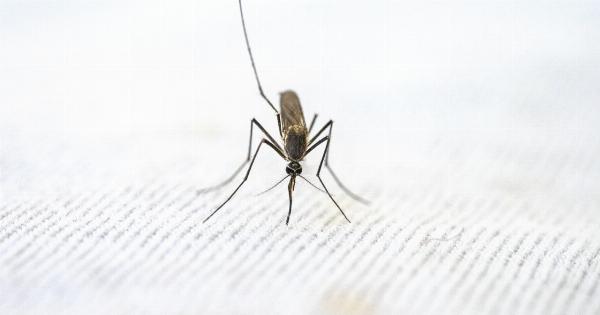In recent months, health authorities around the world have been grappling with a concerning surge in the number of influenza and measles cases.
This sudden and substantial rise has prompted a global pandemic alert, urging people to take precautionary measures and prioritize their health and well-being. With influenza and measles being highly contagious viral diseases, their increased prevalence poses a grave threat to public health.
In this article, we delve into the reasons behind this escalation, the potential consequences, and the preventive measures individuals and communities can adopt to curb the spread.
The Resurgence of Influenza
The influenza virus, commonly known as the flu, has been annually circulating across the globe, causing seasonal outbreaks during winter months. However, the recent increase in cases has surpassed previous records, creating a cause for alarm.
Multiple factors contribute to this sudden surge:.
1. Changes in the Influenza Virus
The influenza virus has a high mutation rate, constantly evolving to evade our immune system and adapt to new hosts.
This constant change makes it challenging for medical researchers to develop effective vaccines, as they need to accurately predict the strain for each flu season. In some instances, the virus undergoes significant antigenic drift or shift, rendering existing vaccines less effective against the new strains.
2. Decreased Immunity
As influenza strains evolve, individuals who were previously immune or had milder infections may be susceptible to the new strains.
This decreased immunity can be attributed to various factors, including waning vaccine effectiveness over time, pre-existing health conditions, or weakened immune systems due to stress, lack of sleep, and poor nutrition.
3. Travel and Global Connectivity
In an increasingly interconnected world, with extensive travel and global networks, viruses can spread rapidly across borders.
An individual carrying the virus can easily transmit it to others while traveling, leading to outbreaks in previously unaffected areas. This global mobility contributes to the rapid transmission and widespread nature of the viruses.
The Measles Outbreak
While measles was once considered eradicated or under control in many countries, recent years have witnessed a resurgence of this highly contagious viral disease.
Measles is primarily transmitted through respiratory droplets and can remain suspended in the air for hours. The reasons behind this resurgence in measles cases are as follows:.
1. Vaccine Hesitancy
Vaccine hesitancy, fueled by misinformation and mistrust, has played a significant role in the rise of measles cases.
Despite the availability of safe and effective measles vaccines, some individuals and communities choose not to vaccinate themselves or their children. This reluctance to vaccinate has contributed to clusters of susceptible individuals who are more prone to contracting and spreading the virus.
2. Interruptions in Immunization Programs
In certain regions, interruptions in routine immunization programs have occurred for various reasons, including conflicts, natural disasters, or resource constraints.
These disruptions leave populations vulnerable to infectious diseases like measles, making it easier for the virus to find susceptible individuals and cause outbreaks.
3. Global Measles Travel
Measles is highly contagious, and even a small number of infected individuals can spark outbreaks.
With increased international travel, measles-infected individuals can unknowingly carry and transmit the virus to those who are not immune, leading to localized outbreaks and eventual widespread transmission.
The Serious Consequences of the Increase
The significant increase in influenza and measles cases has grave consequences for both individuals and communities:.
1. Increased Hospitalizations and Healthcare Burden
The surge in cases places an immense burden on healthcare systems, with hospitals reaching maximum capacities. The influx of patients with severe respiratory symptoms strains resources, leading to shortages in medical supplies, staff, and beds.
This increased strain compromises the quality of care provided to both influenza and measles patients, as well as other individuals requiring medical attention.
2. Higher Mortality Rates
Both influenza and measles can lead to severe complications and, in some cases, fatal outcomes. The elderly, young children, individuals with compromised immune systems, and those with pre-existing health conditions are particularly vulnerable.
The increased number of cases inevitably translates into higher mortality rates, further underscoring the urgency to address this pandemic alert.
3. Economic Impact
The pandemic alert prompts measures that disrupt regular economic activities, affecting industries such as travel, tourism, and hospitality. The fear of contracting influenza or measles leads to reduced consumer spending and decreased productivity.
As a result, local and global economies suffer, exacerbating the already challenging situation.
Preventing the Spread and Mitigating the Impact
To combat the escalation of influenza and measles cases, concerted efforts are necessary at individual, community, and governmental levels:.
1. Vaccination Campaigns and Education
Effective vaccination campaigns, accompanied by educational initiatives, are crucial in addressing both diseases.
Governments and healthcare organizations must emphasize the importance of vaccines, debunk misinformation, and raise awareness about the benefits of immunization. By increasing vaccine uptake, populations can develop herd immunity, protecting vulnerable individuals and preventing future outbreaks.
2. Strengthening Healthcare Systems
Healthcare systems need reinforcement and investment to prepare for outbreaks and effectively manage the surge in cases.
This includes increasing the number of healthcare professionals, expanding hospital capacity, and ensuring an adequate supply of medical equipment and medications. By strengthening healthcare systems, communities can effectively respond to the increased burden imposed by the pandemic alert.
3. Global Surveillance and Collaboration
Enhanced global surveillance is essential to monitor outbreaks, track virus mutations, and facilitate a coordinated response.
International collaboration between health authorities, research institutions, and vaccine manufacturers is crucial in developing effective vaccines and treatments for both influenza and measles. Sharing information and resources can help in containing the spread and reducing the impact of these diseases.
Conclusion
The significant increase in influenza and measles cases worldwide necessitates urgent action and heightened vigilance.
The convergence of multiple factors, including viral mutation, decreased immunity, travel, vaccine hesitancy, and interruptions in immunization programs, has created a perfect storm. To prevent further escalation, individuals, communities, and governments must unite in combating these diseases by increasing vaccination rates, strengthening healthcare systems, and fostering global collaboration.
Only through concerted efforts and a proactive approach can we mitigate the consequences and protect the health and well-being of current and future generations.






























